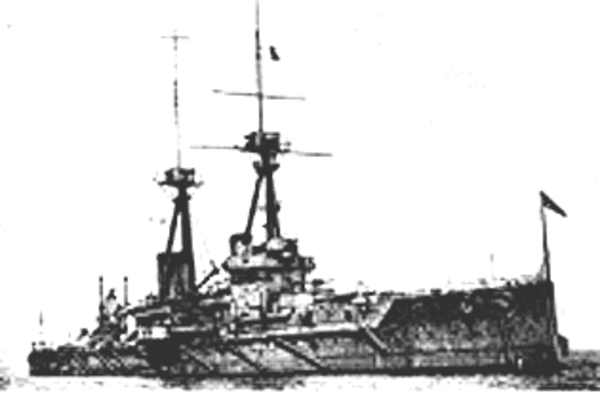The Battle of Jutland
The Battle of Jutland is considered to have been the only major naval battle to take place during World War One.
While Britain lost more men and ships than Germany during the Battle of Jutland, the ultimate verdict was that Germany lost the battle as they were never again in the position to be able to put to sea again.
Admiral John Jellicoe, who commanded the Royal Navy during the Battle of Jutland, had his tactics criticised by some, but many historians argue that his decisions were sound. In fact, once the battle had ended the British Navy, despite losing more assets, remained a powerful force while the German High Seas fleet was quite the opposite.
The success of Britain was hardly a surprise to the British public. For many years, Britain had believed that its naval fleet reigned supreme across the world, particularly after Germany’s failure during the naval race. Britain grew to believe, as is suggested by the song “Rule Britannia”, that the country could not be beaten at sea.

The start of the naval race was prompted by the development of the dreadnought and the two fleets were soon ready to cause great destruction on the high seas. However, at the start of the war, only minor naval clashes had occurred between Britain and Germany. One argument for the lack of major battle is that both fleets were reluctant to face a possible victory that could leave them vulnerable.
Instead, the British Navy based itself in the North Sea where it was able to protect the central and northern areas and prevent the German High Seas fleet from getting into the Atlantic ocean, where it could cause a number of problems for the merchant vessels. Additionally, it was believed that Germany would not attempt to attack in the English Channel due to the risk of being tackled by the full might of the British Navy, so they were unable to operate in the North Sea at all.
By 1916, Britain had created an effective blockade that was easy to enforce and hard to penetrate. However, when Admiral von Paul of the German High Seas fleet was replaced by Admiral Reinhardt von Scheer, he decided that it had gone far enough.
Scheer planned to lure parts of the British fleet out of their naval bases using submarines and surface boats, and this attack took place on the nights of the 24th and 25th April 1916 in Lowestoft and Yarmouth. Scheer then ordered Admiral von Hipper to go to sea in May with 40 ships and to move along the Danish coast.
These actions were seen by Admiral Jellicoe as provocative and ordered the Grand Fleet to put to sea. The Battle of Jutland began on 31st May 1916.
Once cruisers had tracked down the enemy fleet, Jellicoe was joined by the fleet based at Scapa Flow led by Sir David Beatty. Another 52 ships joined the Grand Fleet and the 40 German ships were immediately outnumbered. However, when the fleets opened fire at a distance of around ten miles the Germans gained an initial advantage due to increased visibility thanks to the lay of the sun.
Additionally, Jellicoe and Beatty were 15 miles apart and this allowed Scheer and Hipper to to join together and destroy three ships within a matter of minutes.
However, once Jellicoe and Beatty moved closer together, they became such a strong force that Hipper ordered the German fleet to sail north. Concerned that it may be a trap, Jellicoe refused to follow, and instead sailed south to cut off the Germans when they tried to sail home.
Both fleets clashed once more when the Germans sailed for port, with three ships either sunk or damaged on the German side.
The Germans claimed that Jutland had been a victory for them as they claimed more ships - Britain lost 14 ships and 6,000 men while Germany lost 9 ships and 2,500 men - but Jellicoe claimed otherwise, stating that the British fleet was still seaworthy while the German fleet was not.
MLA Citation/Reference
"The Battle of Jutland". HistoryLearning.com. 2025. Web.
